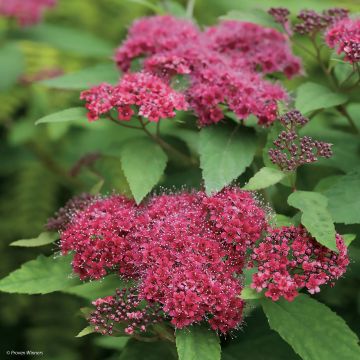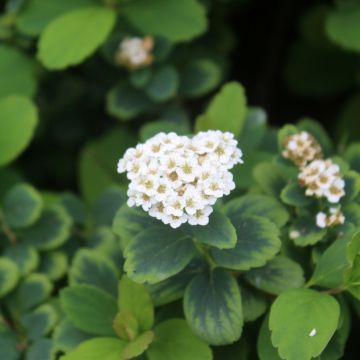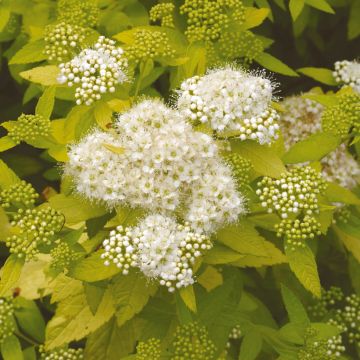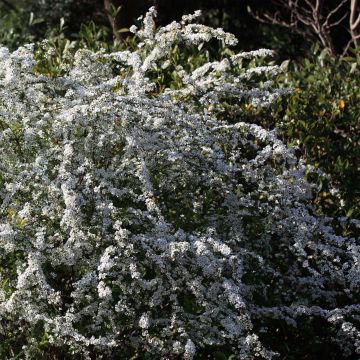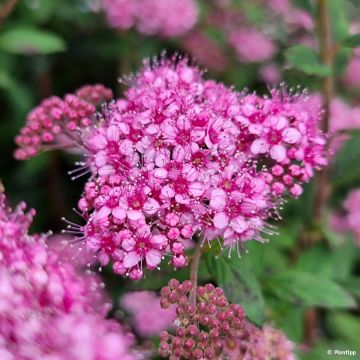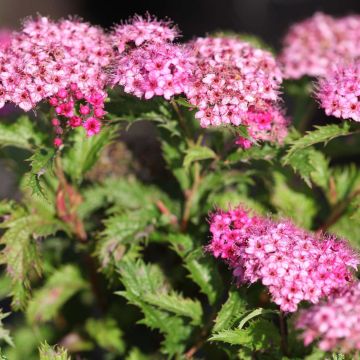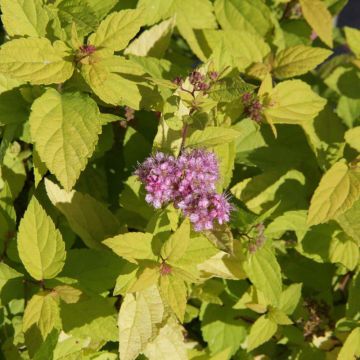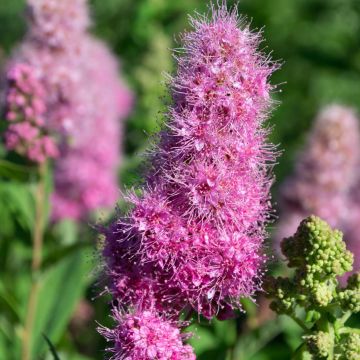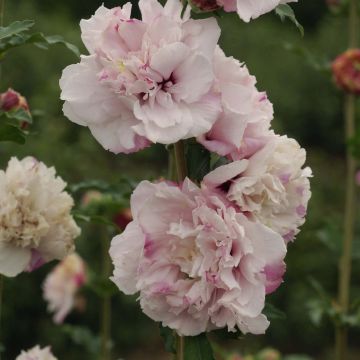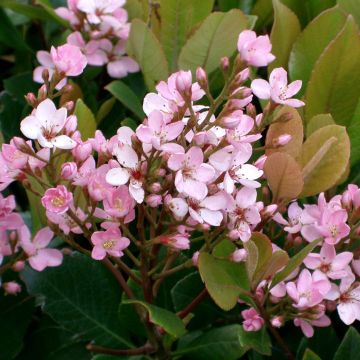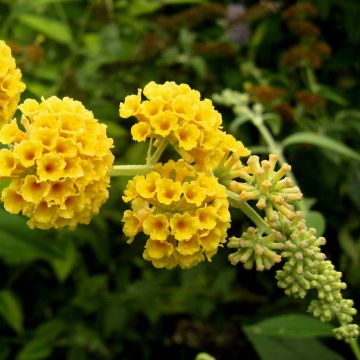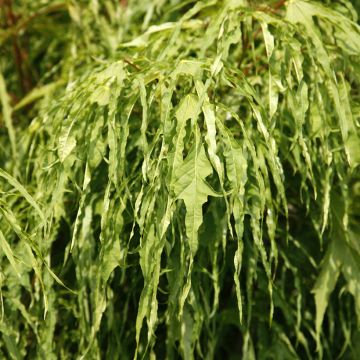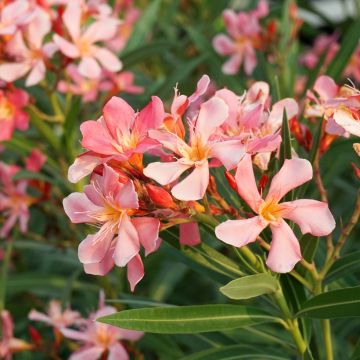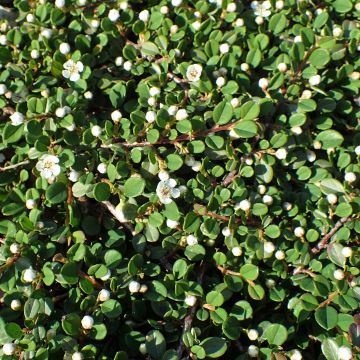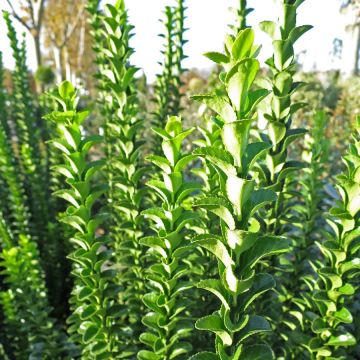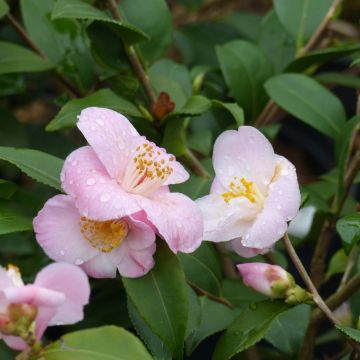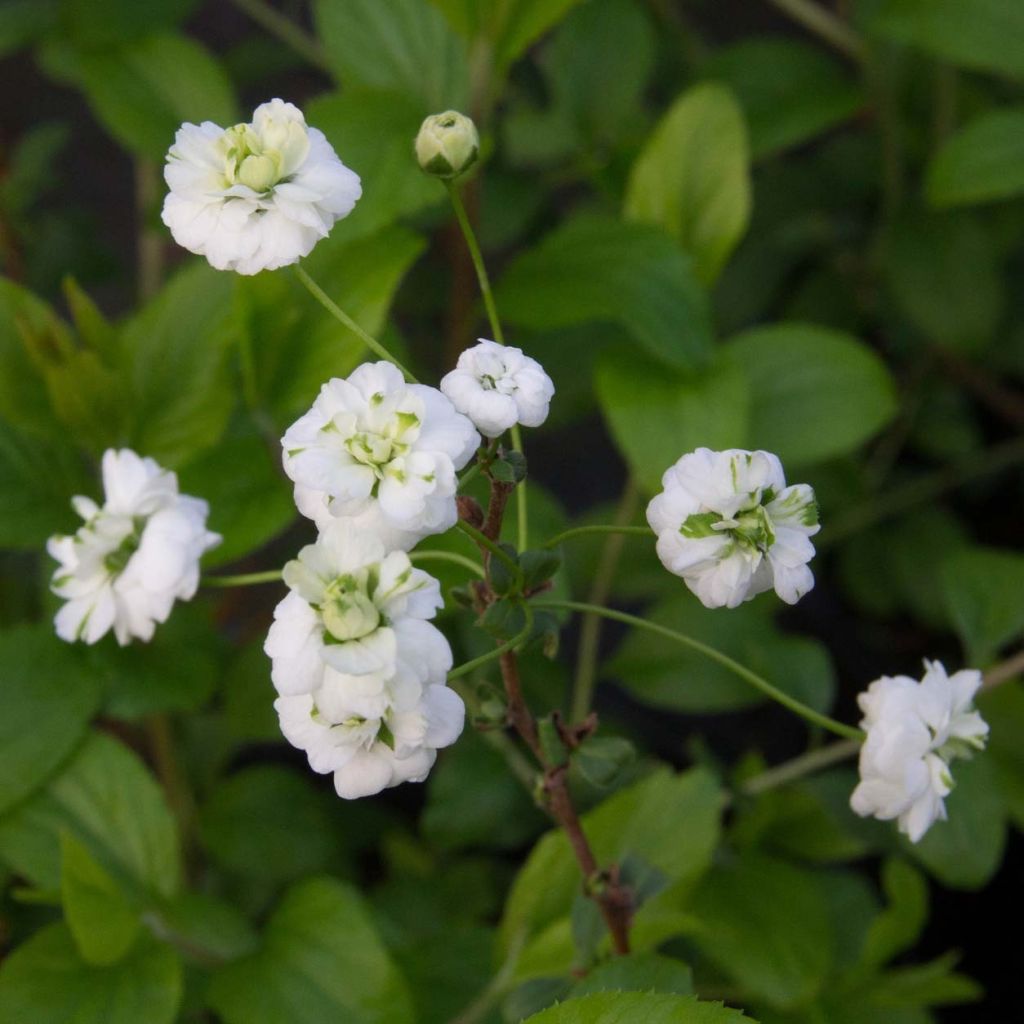

Spiraea prunifolia Plena
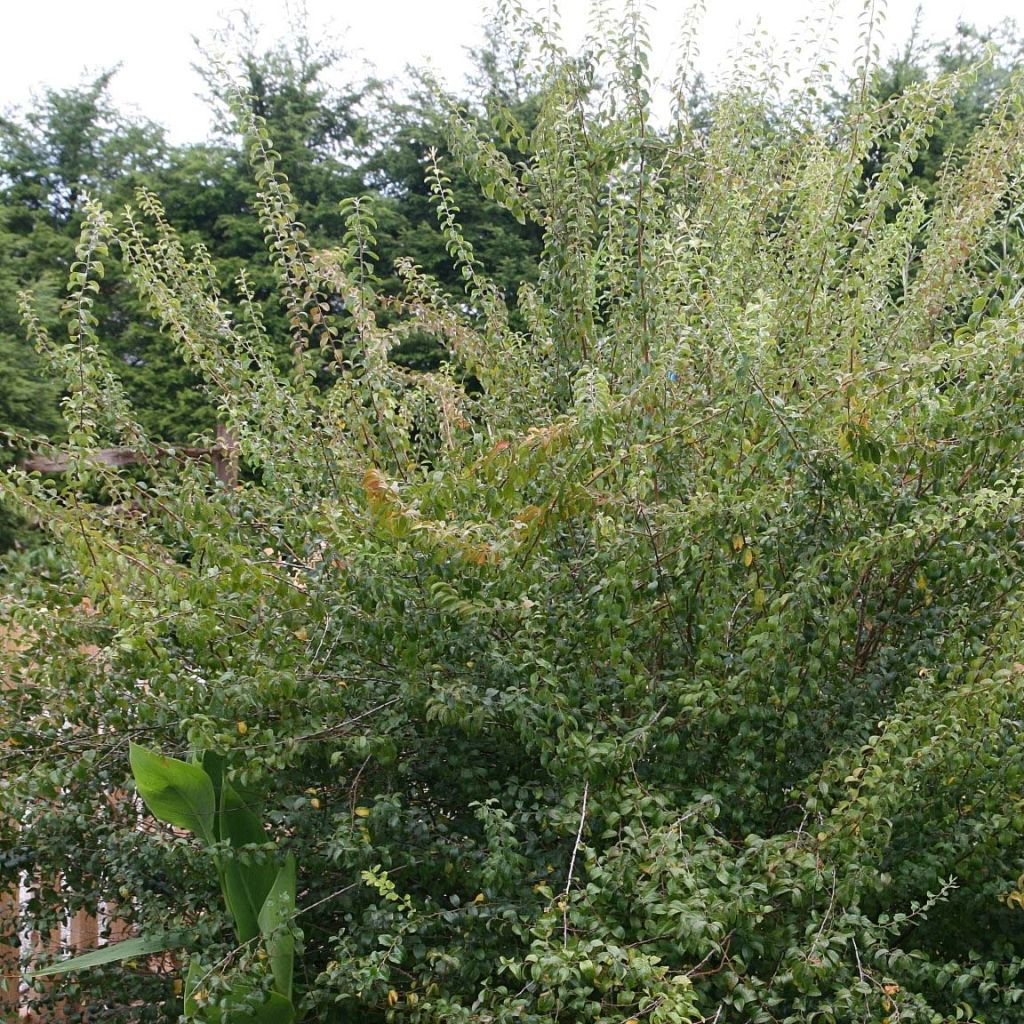

Spiraea prunifolia Plena
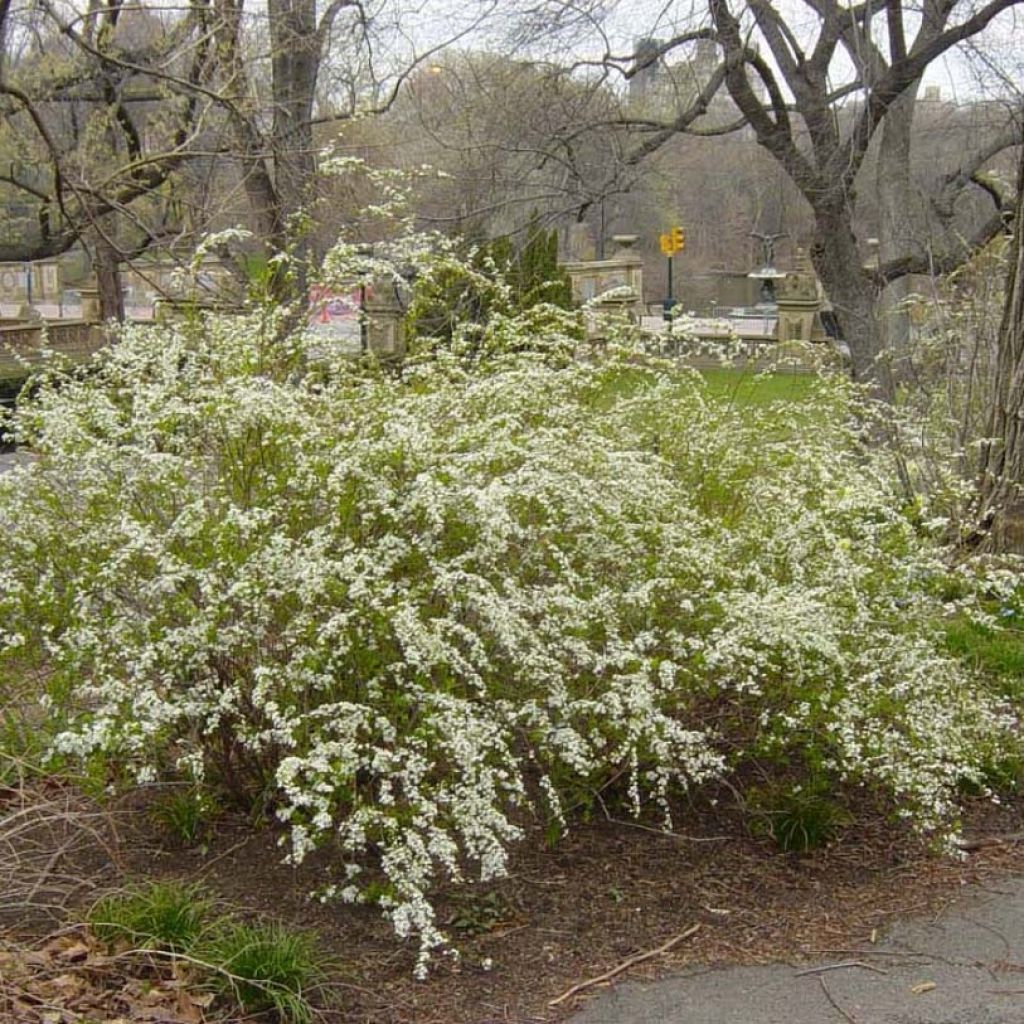

Spiraea prunifolia Plena
Spiraea prunifolia Plena
Spiraea prunifolia Plena
Bridal Wreath Spirea, Bridalwreath Spiraea
This item cannot be shipped to the selected country
Delivery charge from €5.90
More information
Schedule delivery date,
and select date in basket
This plant carries a 24 months recovery warranty
More information
We guarantee the quality of our plants for a full growing cycle, and will replace at our expense any plant that fails to recover under normal climatic and planting conditions.
From €5.90 for pickup delivery and €6.90 for home delivery
Express home delivery from €8.90.
Does this plant fit my garden?
Set up your Plantfit profile →
Description
The Spiraea prunifolia Plena, sometimes referred to as 'Flore Pleno' or 'Pleniflora', is not the most well-known spring spirea, despite the early blooming and refinement of its white flowers. Beneath its poetic appearance of a white cloud made up of a multitude of tiny double rosettes lies a remarkably robust bush that seems to withstand the cold, dryness, and mediocre soils. Beautiful in spring, it delights the gardener once again with its beautiful autumn colours. For those who have adopted it, there are few shrubs as endearing as this cultivar with its double flowers. It undoubtedly deserves a place in our gardens, in large shrub beds or in a small bocage hedge.
Spiraea prunifolia, or plum-leaved spirea, belongs to the Rosaceae family. It is a deciduous bush that tends to sucker originating from China, Korea, and Japan. In the wild, it can be found in thickets, on rocky slopes or steep cliffs, as well as in various dry and sunny habitats, up to 1500m (4921ft) altitude. Very accommodating, the only situation this spirea will not tolerate is excessive limestone in the soil. The 'Plena' form differs little from the type that already has double flowers. Its flowers simply have even more petals.
It is a shrub with a bushy habit and a slightly dishevelled silhouette, supported by long, slender, upright, and slightly twisted reddish-brown branches. Its growth is rapid, reaching an average of 1.50m (5ft) in all directions within 3 to 4 years. The flowering, spectacular and very abundant, usually takes place in April-May, sometimes as early as March in mild climates. The tiny double white flowers, 1cm (1in) in size, grouped in small umbels, appear along the previous year's branches. The Spiraea prunifolia Plena develops its foliage after flowering. Bright green in colour, it often takes on pretty red and orange colours in autumn before falling, depending on the climate and the year. The small leaves are ovate and pointed at their tips, measuring 2 to 3cm (1in). They are alternately arranged on the branches. This spirea produces suckers at the periphery of its base: they can be removed to limit its spread, but also replanted elsewhere or given to a gardening friend.
Hardy, undemanding, requiring very little maintenance, and this lesser-known white spirea adapts to all climates. It can be used in beds, as a standalone plant, in groups, and of course in small flowering hedges. To create a small, light spring bed, it can be paired with Berberis thunbergii Rose Glow, Prunus triloba multiplex, Prunus x cistena, Japanese quince, Ribes sanguineum, and white, pink, orange, or even red Cytisus x praecox, which are also undemanding plants. In a small garden, this truly poetic shrub looks great when planted in groups of 3 as a standalone feature in the corner of a lawn.
Report an error about the product description
Spiraea prunifolia Plena in pictures
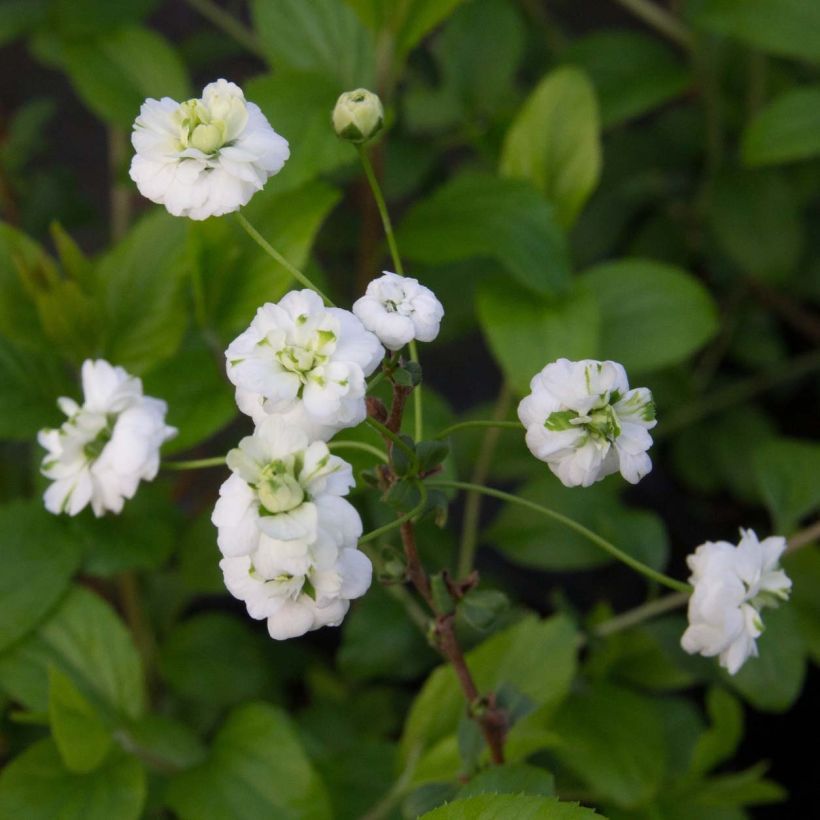

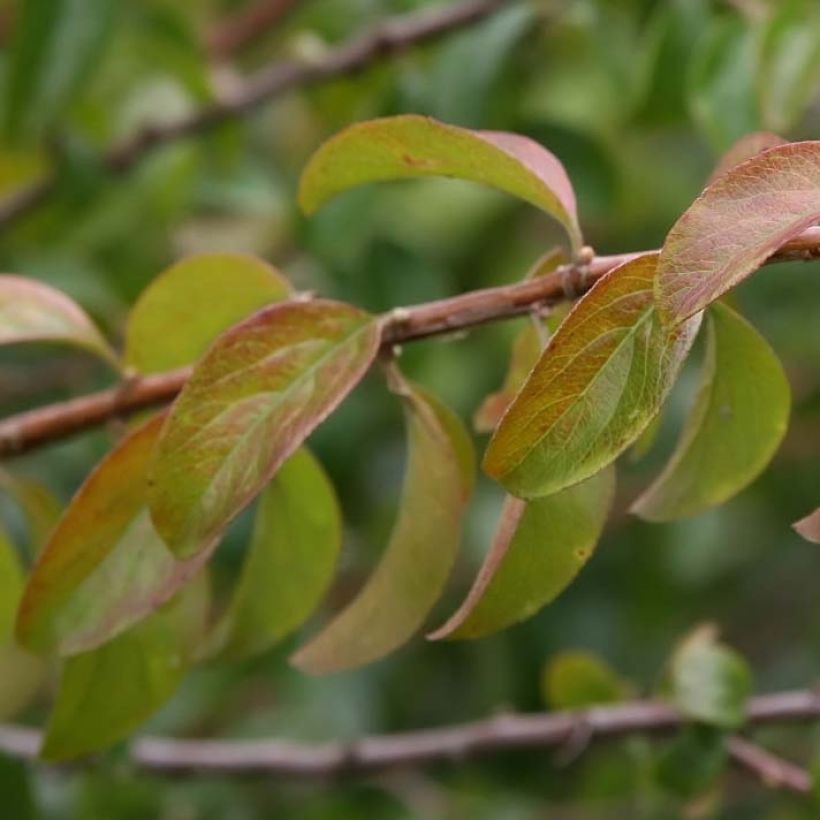

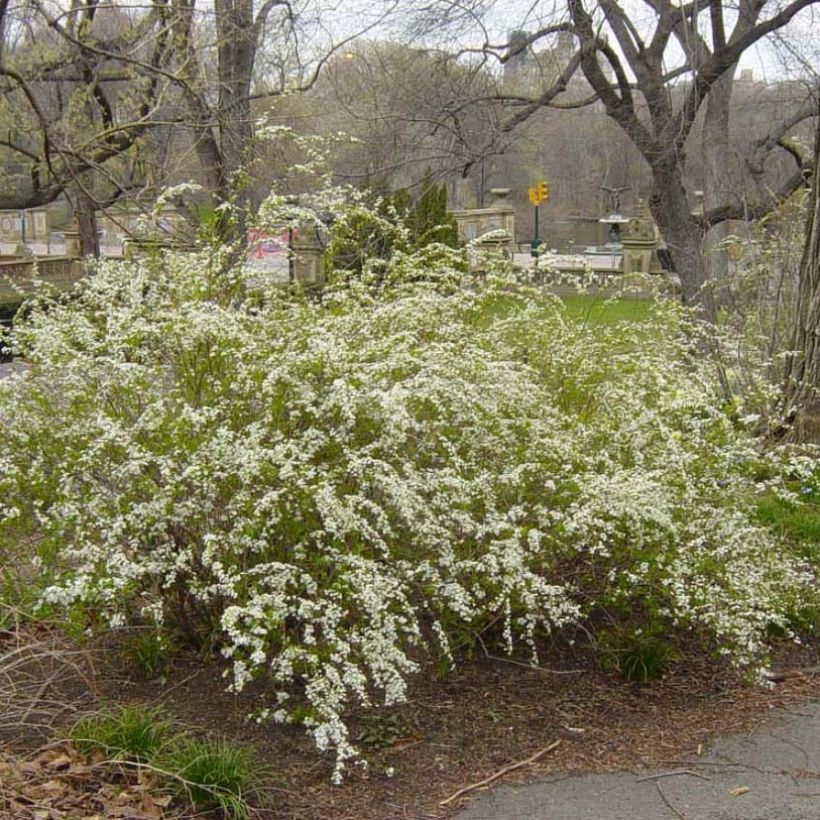

Plant habit
Flowering
Foliage
Botanical data
Spiraea
prunifolia
Plena
Rosaceae
Bridal Wreath Spirea, Bridalwreath Spiraea
China
Other Spiraea
Planting and care
Plant the Bush prunifolia Plena in any well-drained soil without excessive limestone, which can cause its leaves to turn yellow. However, the soil should be deep enough, especially in very dry areas in the summer. This undemanding bush will thrive in full sun or partial shade. To maintain the vigour of the young plant, it is essential to remove old branches at the base in spring. Prune lightly after flowering if necessary, removing half their length from faded shoots—this plant flowers on last year's branches. Apply a complete fertiliser every year in March. Water regularly to aid establishment, especially in dry and hot weather in summer. Once well-established (after 2 to 4 years), this bush will manage on its own and will not require watering. It has excellent cold resistance and few enemies in the garden..
Planting period
Intended location
Care
This item has not been reviewed yet - be the first to leave a review about it.
Hedge shrubs
Haven't found what you were looking for?
Hardiness is the lowest winter temperature a plant can endure without suffering serious damage or even dying. However, hardiness is affected by location (a sheltered area, such as a patio), protection (winter cover) and soil type (hardiness is improved by well-drained soil).

Photo Sharing Terms & Conditions
In order to encourage gardeners to interact and share their experiences, Promesse de fleurs offers various media enabling content to be uploaded onto its Site - in particular via the ‘Photo sharing’ module.
The User agrees to refrain from:
- Posting any content that is illegal, prejudicial, insulting, racist, inciteful to hatred, revisionist, contrary to public decency, that infringes on privacy or on the privacy rights of third parties, in particular the publicity rights of persons and goods, intellectual property rights, or the right to privacy.
- Submitting content on behalf of a third party;
- Impersonate the identity of a third party and/or publish any personal information about a third party;
In general, the User undertakes to refrain from any unethical behaviour.
All Content (in particular text, comments, files, images, photos, videos, creative works, etc.), which may be subject to property or intellectual property rights, image or other private rights, shall remain the property of the User, subject to the limited rights granted by the terms of the licence granted by Promesse de fleurs as stated below. Users are at liberty to publish or not to publish such Content on the Site, notably via the ‘Photo Sharing’ facility, and accept that this Content shall be made public and freely accessible, notably on the Internet.
Users further acknowledge, undertake to have ,and guarantee that they hold all necessary rights and permissions to publish such material on the Site, in particular with regard to the legislation in force pertaining to any privacy, property, intellectual property, image, or contractual rights, or rights of any other nature. By publishing such Content on the Site, Users acknowledge accepting full liability as publishers of the Content within the meaning of the law, and grant Promesse de fleurs, free of charge, an inclusive, worldwide licence for the said Content for the entire duration of its publication, including all reproduction, representation, up/downloading, displaying, performing, transmission, and storage rights.
Users also grant permission for their name to be linked to the Content and accept that this link may not always be made available.
By engaging in posting material, Users consent to their Content becoming automatically accessible on the Internet, in particular on other sites and/or blogs and/or web pages of the Promesse de fleurs site, including in particular social pages and the Promesse de fleurs catalogue.
Users may secure the removal of entrusted content free of charge by issuing a simple request via our contact form.
The flowering period indicated on our website applies to countries and regions located in USDA zone 8 (France, the United Kingdom, Ireland, the Netherlands, etc.)
It will vary according to where you live:
- In zones 9 to 10 (Italy, Spain, Greece, etc.), flowering will occur about 2 to 4 weeks earlier.
- In zones 6 to 7 (Germany, Poland, Slovenia, and lower mountainous regions), flowering will be delayed by 2 to 3 weeks.
- In zone 5 (Central Europe, Scandinavia), blooming will be delayed by 3 to 5 weeks.
In temperate climates, pruning of spring-flowering shrubs (forsythia, spireas, etc.) should be done just after flowering.
Pruning of summer-flowering shrubs (Indian Lilac, Perovskia, etc.) can be done in winter or spring.
In cold regions as well as with frost-sensitive plants, avoid pruning too early when severe frosts may still occur.
The planting period indicated on our website applies to countries and regions located in USDA zone 8 (France, United Kingdom, Ireland, Netherlands).
It will vary according to where you live:
- In Mediterranean zones (Marseille, Madrid, Milan, etc.), autumn and winter are the best planting periods.
- In continental zones (Strasbourg, Munich, Vienna, etc.), delay planting by 2 to 3 weeks in spring and bring it forward by 2 to 4 weeks in autumn.
- In mountainous regions (the Alps, Pyrenees, Carpathians, etc.), it is best to plant in late spring (May-June) or late summer (August-September).
The harvesting period indicated on our website applies to countries and regions in USDA zone 8 (France, England, Ireland, the Netherlands).
In colder areas (Scandinavia, Poland, Austria...) fruit and vegetable harvests are likely to be delayed by 3-4 weeks.
In warmer areas (Italy, Spain, Greece, etc.), harvesting will probably take place earlier, depending on weather conditions.
The sowing periods indicated on our website apply to countries and regions within USDA Zone 8 (France, UK, Ireland, Netherlands).
In colder areas (Scandinavia, Poland, Austria...), delay any outdoor sowing by 3-4 weeks, or sow under glass.
In warmer climes (Italy, Spain, Greece, etc.), bring outdoor sowing forward by a few weeks.


































